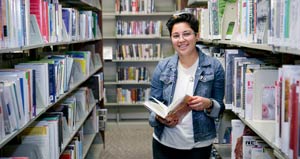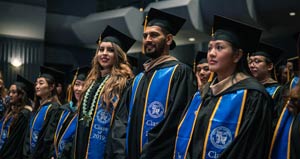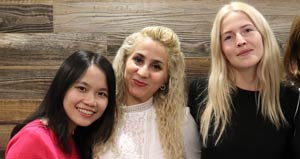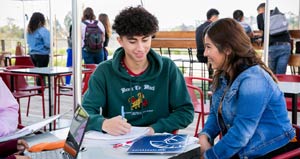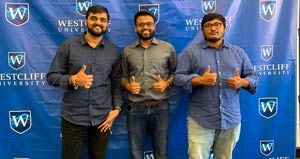
How Westcliff’s SMART™ Program Drives Real-World Impact with United Way
When United Way in Corona, California set out to amplify its message about domestic violence services, they knew they needed more than just traditional marketing strategies. That’s when they turned to Westcliff University’s SMART™ MBA students, tasking them with a real-world challenge: developing innovative strategies to increase awareness of their services, enhance fundraising, and ultimately better serve families affected by domestic violence, homelessness, and poverty.
Westcliff University’s SMART™ MBA Consulting capstone program enables students to act as management consultants for global powerhouses, regional brands, nonprofits, and startups. For this project, the primary objective for students was to build a comprehensive marketing plan that would raise both awareness and funds. The team dug into the heart of the issue, researching Corona-Norco United Way’s audience and local demographics. They realized that to reach the right people, they needed to target specific communities—particularly women-owned businesses and businesses owned by people of color, which aligned with United Way’s mission and values.
They proposed collaborations with local influencers and community leaders who could advocate for United Way’s services and campaigns. The students also crafted a series of social media posts and content strategies designed to highlight United Way’s efforts, ensuring the message would resonate across platforms.
SMART™ MBA student Fengkai Li shared his approach: “We analyzed their existing strategies and provided solutions, including a full social media plan to promote their services. The idea was to connect with the right audience authentically and organically.”
Leveraging Traditional and Digital Marketing
In addition to their digital marketing efforts, the students suggested a dual approach that included more traditional methods. One of their key recommendations was to use direct mail campaigns targeting high-income neighborhoods. The goal was to draw in donors who could contribute financially to United Way’s programs, ensuring the sustainability of services offered to families in crisis.
“We helped them develop event-based fundraising strategies and provided templates for direct mail that would appeal to donors,” Fengkai Li explained. “By mixing traditional and digital marketing, we ensured they reached different segments of the community.”
The students even went a step further by advising on event logistics for United Way’s future fundraising campaigns, ensuring they had a clear roadmap for execution. Their ideas ranged from hosting community events to collaborating with local libraries and utilizing community spaces to extend the nonprofit’s reach.
Students Taking Matters Into Their Own Hands
The hands-on nature of the project allowed SMART™ students to bridge the gap between theory and practice. Anastasiia Soloveva, a student deeply involved in the project, reflected on the experience: “Working with United Way was incredible. It wasn’t just a project—it was the first time I acted as a consultant with a real-life organization, and I felt like I was truly making a difference.”
Anastasiia’s team didn’t just focus on small, incremental changes, they sought innovative, out-of-the-box solutions that would make a lasting impact. “It helped me tap into my creativity, and we came up with ideas I never would have thought of before. We didn’t just want to solve problems—we wanted to find ways to help a nonprofit grow in ways that were authentic and impactful,” she added.
This creativity extended beyond marketing. The students’ research and data-driven analysis laid the foundation for a detailed marketing plan that United Way could present to its board of directors and staff. Dr. Alia Rodriguez, CEO of United Way Corona, expressed her gratitude for the students’ work: “The research and data they provided will allow us to execute both our fundraising and awareness campaigns more effectively. They’ve given us the tools we need to better serve families affected by domestic violence, poverty, and homelessness.”
The SMART™ Program: More Than Just Consulting
In the case of United Way, the collaboration proved mutually beneficial. The nonprofit gained valuable marketing strategies and research that will shape their future campaigns, while the students walked away with hands-on experience that prepared them for future careers.
“The experience helped me develop skills I didn’t even know I had,” said Anastasiia. “It was more than just marketing—we learned how to think strategically, communicate effectively, and work as a team to solve real problems.”

